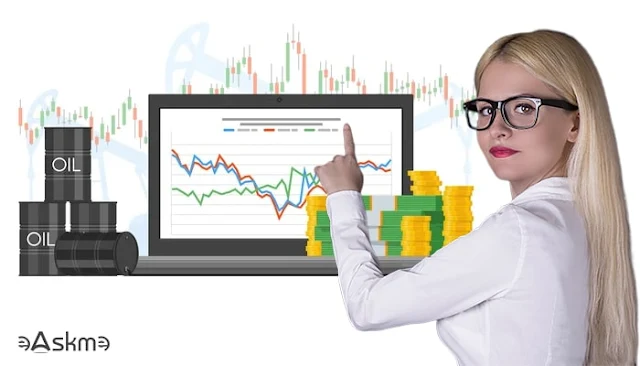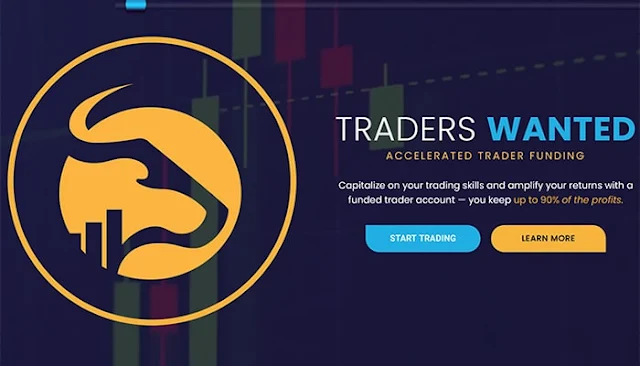Many traders jump into Forex day trading in hopes of high-profit potential but fail to equip themselves with the right tools and knowledge when doing so. This is where the importance of brokers offering demo accounts and day trading simulators comes in. Traders Union has shortlisted the best platforms providing these tools in 2024 for traders on the lookout for such offers.
Traders Union's Evolve Markets review:
One of the platforms known for offering new traders with a demo account is Evolve Markets. Established in 2016, the company positions itself as a high-leverage platform with no mandatory minimum deposit while observing a no withdrawal fee policy.
It offers a 1:1000 leverage for currency exchange, 1:500 for commodities and indices, and 1:100 for cryptocurrency and stocks. This enables traders to take positions more significant than their initial margins for quick and substantial profits.
 |
| Traders Union Name Best Free Day Trading Simulators: eAskme |
The platform also features a diverse selection of trading assets, providing traders with the flexibility to engage in the most liquid asset classes at any given time.
Moreover, Traders Union highlighted that beginner users can use the platform's demo account to their advantage. This means that they can simulate trading and test strategies without money involved.
Downsides of trading with Evolve Markets:
A notable drawback of using Evolve Markets is its unstable regulatory standing. It holds only one license issued by the MWALI International Services Authority, a regulatory body not recognized among the top-tier licensing entities globally, such as the United Kingdom's Financial Conduct Authority (FCA), the Cyprus Securities and Exchange Commission (CySEC), and the Australian Securities and Investment Commission (ASIC).
This raises concerns about the safety of client funds. Despite its various benefits, the broker received a meager regulation and safety score of 1.45 out of 10.00 from the latest TU evaluation.
User satisfaction is also lukewarm, scoring 5.93 out of 10.00. Customers often cite a lack of educational resources and intermittent account blocking as primary issues when trading with the broker.
Evolve Markets received a TU Overall Score of 6.30 out of 10.00, placing 68th among 383 companies assessed during the period.
Companies in this score range are categorized as moderate risk, and customer research before opening an account is advised.
Brokers offering free day trading simulators:
Despite the availability of a demo account, Evolve Markets has its share of disadvantages. With this, customers can consider looking for other trusted brokers offering day trading simulators.
Check this out for a complete list of brokers offering these exclusive tools to their clients:
- RoboForex - offers the Demo Trading Account for an unlimited period for interested users wanting to test out their strategies without unnecessarily burning cash in the process.
- Exness - another top-rated broker offering a day trading simulator feature called 'Exness Demo Account.' The tool's trial period has no time limit and is recommended best for beginner traders.
- eToro - the eToro Demo Account caters to both beginner and experienced traders with a $100,000 virtual limit.
- Interactive Brokers - the Interactive Brokers TWS Demo has an unlimited trial period, allows users to trade up to $100,000 in simulator mode, and is known for its advanced analytical tools.
- Tickmill - the Tickmill Demo Account is acclaimed by experienced traders for free Forex signals and a funded virtual balance that goes as high as $100,000.
Importance of a day trading simulator:
Notable importance of using day trading simulators is the protection it gives, especially for novice users who are still adjusting to the intricacies of currency exchange.
A demo or simulator account allows users to trade in real-time without losing actual funds. This gives traders the flexibility to try and test their strategies and develop their skills along the way while safeguarding their personal interests.
Simulators provide access to historical charts, educational resources, and real-time market data, and traders gain real exposure to trading at practically zero cost.
UFX vs Evolve Markets:
The importance of a broker's demo account tool is invaluable. With this in mind, Evolve Markets can still be considered a good choice despite its regulatory shortcomings.
The flexibility that the broker offers is another good point to consider. The Packageslab produces an article relying on the notes from Traders Union experts.
As mentioned in this article, Evolve exchanges lets you trade Bitcoin, Ethereum, and many more cryptocurrencies, unlike traditional stock exchanges. This allows investors to do multi-asset trading for better profitability and portfolio diversification.
For those looking for a good alternative with better trading instruments, UFX is an excellent choice. The platform has a large section of trading instruments for Forex, commodity, equity, and indices trading.
It also offers low spreads and high leverage, which makes it ideal for the type of trader wanting to maximize their positions with low capital.
On the other hand, it is worth noting that the choice remains largely dependent on one's trading style, risk appetite, and profit goals. As a general rule, traders are encouraged to do their due diligence to avoid having regrets in the end.
Conclusion:
While Evolve Markets offers a valuable demo account and flexible cryptocurrency trading, its unstable regulation and weak user satisfaction raise concerns.
Traders Union has listed a set of alternatives, including RoboForex, Exness, eToro, Interactive Brokers, or Tickmill, which all offer free day trading simulators alongside various benefits for beginner and experienced traders.
It is worth noting that the best Forex broker depends on one's trading style, risk tolerance, and goals, and thorough research is advised before making a choice.
About the author:
Oleg Tkachenko wrote the article. He joined Traders Union as an author and became an integral part of TU's team of financial experts.
Share this post with your friends and family.
Don't forget to like us FB and join the eAskme newsletter to stay tuned with us.
Other handpicked guides for you;





















